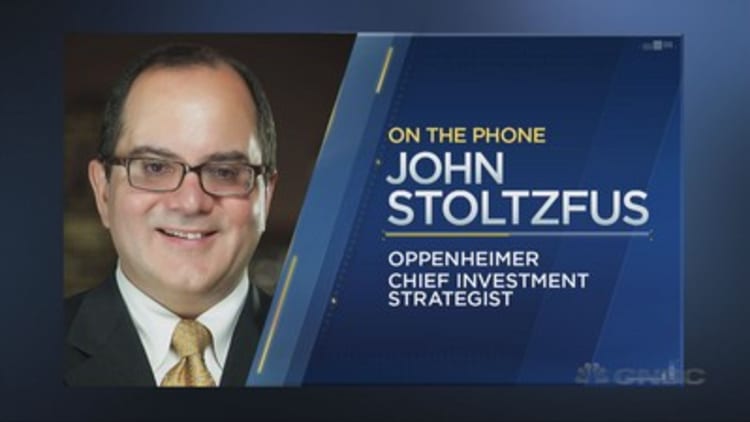
As expected, the Federal Reserve raised its federal funds target rate on Wednesday by 25 basis points, and forecasts about two more rate hikes in the rest of the year. The market reaction was actually slightly positive, with the extending its intraday gains.
Indeed, investors so widely anticipated that the central bank would hike interest rates that if it failed to deliver on expectations, stocks would have slipped, said Oppenheimer Asset Management's chief investment strategist, John Stoltzfus, in a recent interview.
"I don't think the market would be overly dramatic to the downside, but it might take a little trim. Not quite a haircut, but maybe a trim, you know down maybe 1, 3 percent, something like that," Stoltzfus said Tuesday on CNBC's "Trading Nation."
While the decision was seen as a near lock — so Stoltzfus was not making a bearish prediction — what's notable is that equities are managing to shrug off the potential ill effects of higher rates. Even over the past few weeks, as Fed officials appeared to make a concerted effort to telegraph that a March hike was imminent, stocks have held up just fine.
Of course, increasing interest rates are classically bearish for stocks, as they make bonds a more attractive alternative. But with rates remaining generally low, investors appear to be more focused on what the Fed's plans imply about the strength of the U.S. economy.
For an example of the promise of lower rates hurting stocks, one need only recall the Fed's September 2015 statement, which was more dovish than many expected. While a disinclination to hike might typically be bullish for equities, stocks fell sharply in response, presumably because investors were left with the fear the central bank saw serious red flags in the economic data.
"Bottom line, today was a reminder that the Fed is going to take its grand old time in normalizing rates (aka, getting them to at least to where inflation sits)," Peter Boockvar, chief market analyst at The Lindsey Group, wrote in a Wednesday afternoon note.
"The dollar index is at the lowest level since February 20th and stocks continue to celebrate dovishness and easy money," he wrote.
Stoltzfus, meanwhile, remains a bull, with a year-end target of 2,450. He says it is important that investors are exposed to cyclical stocks, which tend to perform well when the economy is in an upswing.







